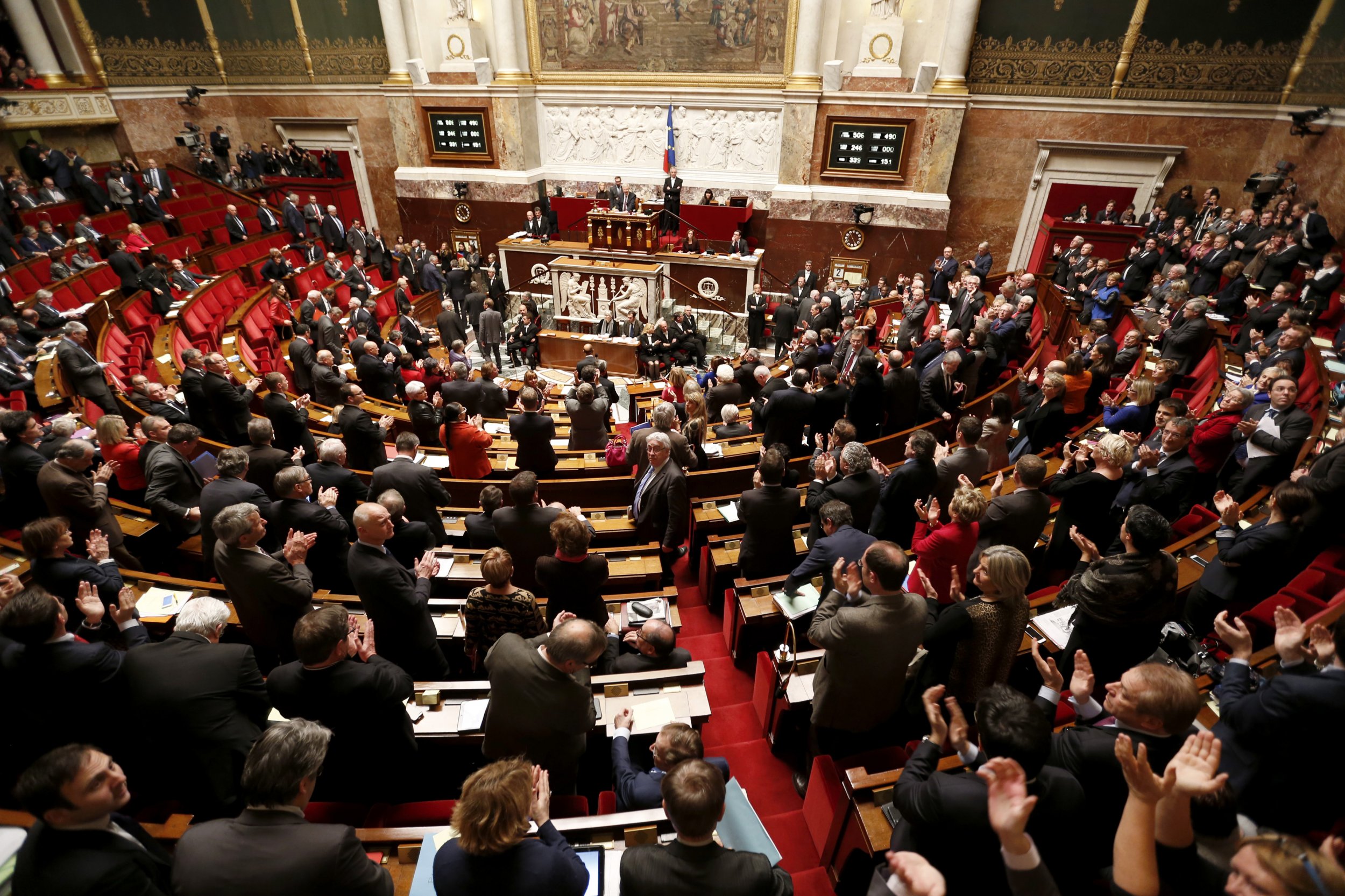
A human rights expert has warned that freedom of speech in France is facing "a major threat" and is in a "very dangerous situation", as a stringent anti-terror law came into force in the wake of the Charlie Hebdo terror attacks last month.
The new law went into effect this week, allowing the French police to block websites that are considered to be promoting terrorism without first seeking a court order. The French interior minister Bernard Cazeneuve, has said that the move is vitally important in the fight against terrorism, but others disagree.
According to Clemence Bectarte, a lawyer for the International Federation for Human Rights, it is just the latest example of the French state clamping down on free speech. "France is still very emotional in the wake of the Charlie Hebdo attacks," she says, "but what we need is a more serene debate. What we are witnessing at the moment is very alarming."
Bectarte is particularly concerned about the increasing numbers of those being detained under French hate speech laws. In the week following the attacks, French newspaper Le Monde reported that almost 70 legal proceedings for "apology and threats of terrorist attacks" had opened.The offence carries a sentence of between five and seven years in prison.
One example Bectarte gives was that of a visibly drunk man who had shouted in public that the police killed in the Charlie Hebdo attacks in January "deserved what they got." He was sentenced to three months in prison. There have also been reports that a man with learning difficulties was sentenced to six months for shouting at police: "They killed Charlie, I laughed."
In late January French police detained and questioned an eight-year-old boy who had reportedly praised the Charlie Hebdo attacks and refused to take part in a national minute of silence that was held for the victims on 9th January. "Let's be serious", says Bectarte. "How can we consider it right that an eight-year-old boy should be kept in custody?"
French legal expert and member of PEN, a group that campaigns internationally for the rights of authors and journalists, Emmanuel Pierrat agrees, and fears that harsher laws will soon be introduced. "Things are not so perfect in this supposed liberal state. Just because this is not China or Saudi Arabia, we think we're safe."
He warns that the French government crackdown in the past few weeks has been the wrong response, and will be counter-effective in the long-run. "The main problem is the education of young people, and integration. Giving more money to the police to block websites is not the solution."
Pierrat is concerned that imprisoning increasing numbers of young people could result in French jails becoming breeding grounds for terrorism, as young offenders meet more hardline extremists. "If you send a young guy to these courts, you are giving them the chance to be converted by existing Islamists in the prisons.The problem will only get worse."
Tensions remain high between communities in France. The French graffiti artist known as Combo wrote last week on Facebook how he had been beaten up after he posted an image of him standing next to his latest work - the word 'coexist', written with religious symbols.
"I would like to be optimistic, but there have been lots of anti-Muslim acts since Charlie Hebdo acts and it is a major cause for concern", Bectarte concludes.
Human rights lawyers in the UK are also worried about the situation in Britain, and say that an "ongoing trend to criminalise speech on the internet" was underway well before Charlie Hebdo.
The 2003 Communications Act ruled that someone can be jailed for writing something "grossly offensive" on social media - defined by the Crown Prosecution Service as being "offensive, shocking and disturbing".
"These laws are not going away", warns Adam Wagner, a barrister and founding editor of the UK Human Rights blog. According to him the Communications Act has been used to prosecute teenagers or young adults who have put careless, offensive comments on their Facebook walls. "They will go to prison for it, and it will potentially ruin their lives. It's a real problem," he says.
Wagner is concerned that the importance of human rights in the UK has become less critical in the wake of the Charlie Hebdo attacks, and fears that if the Conservative Party win a majority in the next election, they will water down human rights protections in the country by downgrading the role of the European Court of Human Rights in UK law.
"If you could take an overall lesson from anti-terrorism law and human rights, it would be that you shouldn't make laws when you're angry, but in the cold light of day when you're calm. One of the big mistakes you can make as a society is to think only in the short term."
He continues: "Even the most democratic and liberal societies can bring in oppressive laws. It's a given that when people suffer a terrorist outrage people are less tolerant with legal niceties. I hear it all the time: 'Why are we bothering with human rights?' But they are what separate us from the terrorists."
"What makes us liberal is that when we catch them we subject them to due process of law as we would to any other human being," Wagner concludes.
Uncommon Knowledge
Newsweek is committed to challenging conventional wisdom and finding connections in the search for common ground.
Newsweek is committed to challenging conventional wisdom and finding connections in the search for common ground.
About the writer
Felicity is a reporter for Newsweek Europe based in London. Twitter: @FelicityCapon
To read how Newsweek uses AI as a newsroom tool, Click here.








